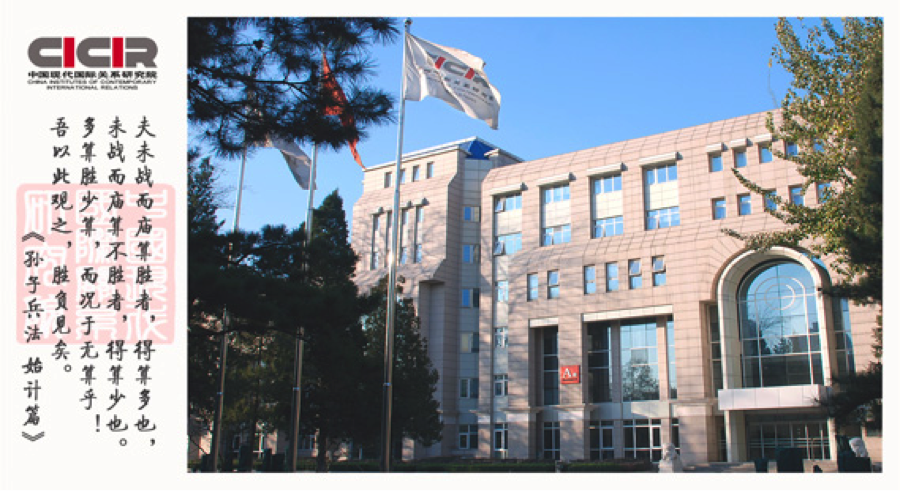
China Institutes of Contemporary International Relations (CICIR) is a comprehensive research institution for international studies. It was officially established in 1980, and was renamed in 2003. The organization mainly focuses on international strategy, international politics and economy, global and regional security, and the political, economic, diplomatic and social issues of major powers. Presently, CICIR consists of 11 institutes, two research divisions, eight research centers and several administrative departments. It has a staff of 380, among whom 150 are professors and associate professors.
CICIR has been repeatedly named one of China's top and most influential think tanks, based, at least in part, on its perceived influence within the PRC government. It is closely associated with the Ministry of State Security. The institutes’ research covers a wide range of global affairs but its foremost focus is the United States and Sino-US relations. Other than this, CICIR’s research involves global counter-terrorism and political unrest in the Arab Spring.
CICIR also has a well-established global outreach program to increase its collaboration with foreign diplomats, scholars, and think tanks, primarily by hosting international conferences, holding closed-door meetings with foreign guests, and sending representatives to overseas academic meetings. PRC media also reports that CICIR has also occasionally hosted or co-hosted international symposiums discussing regional or global issues.
In the last six months, it has held exchanges with the following institutions, among others: Taipei Forum Foundation, Fredrich Ebert Foundation, Akita International University, Asia Foundation, Korea Sejong Insitute, Taiwan Chung Hsing University, Johns Hopkins University, Danish Institute of International Affairs, German Institute for Development of World Economy, Brookings Institute, Moscow Institute of International Affairs, Lowy Institute of Australia, Taiwan National Chengchi University, Center for American Progress, University of Denver, University of Veracruz in Mexico, Campinas, Brazil Institute and Columbia Catholic University.
In April 14 – 17, 2016, University of the Philippines Diliman and Asia Pacific Pathways to Progress Foundation Inc. cooperated on hosting a CICIR delegation of five analysts, including its president Ji Zhiye and four from their Division on Southeast Asia and Oceania Studies. This collaboration aims to build mutual confidence and foster cooperation through academic exchanges between the two institutions and teo countries.
For more information about CICIR, visit their website at http://www.cicir.ac.cn
Source: Open Source Center
